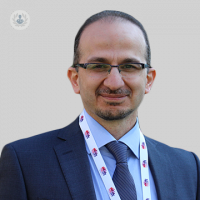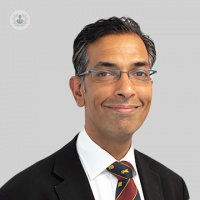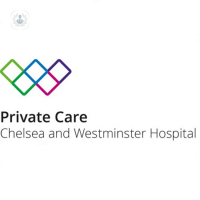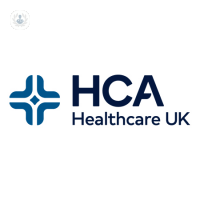What is gallbladder surgery?
Gallbladder surgery is a surgical procedure that is performed to remove the gallbladder, an organ located in the lower part of the liver that serves as a reserve for bile.

Why is gallbladder surgery performed?
Gallbladder surgery is performed when the patient is experiencing pain or presenting with symptoms caused by the formation of calculi (stones) in the gallbladder.
What does gallbladder surgery consist of?
The intervention can be minimally invasive or open.
In minimally invasive gallbladder surgery, the surgeon will make three or four incisions in the abdomen and through one of the holes will introduce a laparoscope (thin and illuminated tube connected to a camera that allows the surgeon to see the inside the cavity) and other instruments necessary to perform the procedure. Subsequently, the specialist will insert gas with a needle to expand the abdomen and cut the bile duct and blood vessels leading to the gallbladder. Finally, the gallbladder is removed.
When gallstones are more severe or there are complications during surgery, an open operation is carried out. This involves making a small cut in the abdomen to open it and extracting the gallbladder through the incision.
Preparation for gallbladder surgery
Before gallbladder surgery, you must undergo certain tests, such as blood tests, urine tests, or certain types of scan (e.g ultrasound) so the specialist can assess your health status, and determine if you are suitable for surgery.
Care after gallbladder surgery
Recovery after gallbladder surgery will depend on the surgical technique used. Normally, in the case of performing an open surgery, 2-4 days recuperation in the hospital is recommended, and in the case of minimally-invasive surgery, day-case procedures can be performed, or an overnight stay may be recommended.
After you are discharged from hospital, postoperative recovery at home e.g resting and avoiding strenuous activity, is necessary. Follow your surgeon’s instructions, as recovery time depends on the type of procedure performed. You will also be advised how to clean your wound, and how to change dressings if necessary.
11-13-2012 09-22-2023Gallbladder surgery
Mr Satyajit Bhattacharya - Surgery
Created on: 11-13-2012
Updated on: 09-22-2023
Edited by: Carlota Pano
What is gallbladder surgery?
Gallbladder surgery is a surgical procedure that is performed to remove the gallbladder, an organ located in the lower part of the liver that serves as a reserve for bile.

Why is gallbladder surgery performed?
Gallbladder surgery is performed when the patient is experiencing pain or presenting with symptoms caused by the formation of calculi (stones) in the gallbladder.
What does gallbladder surgery consist of?
The intervention can be minimally invasive or open.
In minimally invasive gallbladder surgery, the surgeon will make three or four incisions in the abdomen and through one of the holes will introduce a laparoscope (thin and illuminated tube connected to a camera that allows the surgeon to see the inside the cavity) and other instruments necessary to perform the procedure. Subsequently, the specialist will insert gas with a needle to expand the abdomen and cut the bile duct and blood vessels leading to the gallbladder. Finally, the gallbladder is removed.
When gallstones are more severe or there are complications during surgery, an open operation is carried out. This involves making a small cut in the abdomen to open it and extracting the gallbladder through the incision.
Preparation for gallbladder surgery
Before gallbladder surgery, you must undergo certain tests, such as blood tests, urine tests, or certain types of scan (e.g ultrasound) so the specialist can assess your health status, and determine if you are suitable for surgery.
Care after gallbladder surgery
Recovery after gallbladder surgery will depend on the surgical technique used. Normally, in the case of performing an open surgery, 2-4 days recuperation in the hospital is recommended, and in the case of minimally-invasive surgery, day-case procedures can be performed, or an overnight stay may be recommended.
After you are discharged from hospital, postoperative recovery at home e.g resting and avoiding strenuous activity, is necessary. Follow your surgeon’s instructions, as recovery time depends on the type of procedure performed. You will also be advised how to clean your wound, and how to change dressings if necessary.
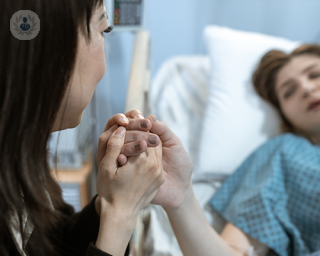

Will gallstones make my gallbladder burst?
By Mr Deepak Hariharan
2024-12-21
Mr Deepak Hariharan guides you on how a burst gall bladder occurs, how to prevent it and symptoms to watch out for. He also explains surgical treatment and recovery. See more
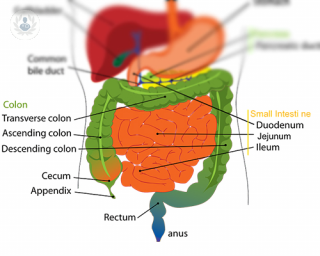

What to expect when having lower GI surgery
By Mr Greg Wynn
2024-12-21
There are various reasons a patient might undergo lower gastrointestinal (GI) surgery, as there are many diseases and conditions that can affect this part of the body. Experienced consultant general surgeon, Greg Wynn, has clearly described the basics of lower GI surgery and has advised what to expect when having the procedure. See more
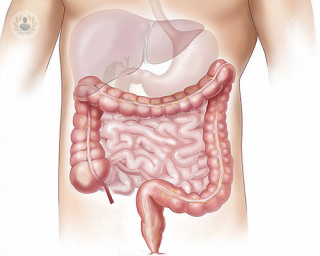

What are gallbladder polyps?
By Dr Charis Kyriakides
2024-12-21
Gallbladder polyps are growths that form on the inner lining of the gallbladder. Although most are benign, some gallbladder polyps may harbour malignancy. Here, Dr Charis Kyriakides, renowned consultant general and upper GI surgeon, offers his expert insight into gallbladder polyps. See more


Gallbladder removal: new approaches
By Professor Brian Davidson
2024-12-20
In this article, consultant HPB (Liver, Gallbladder/Biliary and Pancreas) surgeon Professor Brian Davidson looks at a selection of new treatment approaches currently being trialled in the UK See more
Experts in Gallbladder surgery
-
Mr Satyajit Bhattacharya
SurgeryExpert in:
- Gallbladder surgery
- Pancreatitis
- Pancreas surgery
- Liver surgery
- Liver cancer
- Pancreatic cancer
-
Mr Ahmed R. Ahmed
SurgeryExpert in:
- Bariatric surgery
- Hernia
- Gallbladder surgery
- Acid reflux
- Diabetes surgery
- Weight loss
-
Professor Muntzer Mughal
SurgeryExpert in:
- Oesophageal cancer
- Gastric cancer surgery
- Gallbladder surgery
- Dysphagia
- Tracheoesophageal fistula (TOF)
- Hiatal hernia surgery
-
Mr Ali Alhamdani
SurgeryExpert in:
- Weight loss
- Bariatric surgery
- Gallbladder surgery
- Acid reflux
- Gastric bypass
- Endoscopy
-
Mr Sakhawat (Zak) Rahman
SurgeryExpert in:
- Cholecystectomy
- Laparoscopic hernia surgery
- Pancreas surgery
- Inguinal hernia
- Hiatal hernia surgery
- Gallbladder surgery
- See all

Sussex Premier Health Hastings
Sussex Premier Health Hastings
The Ridge, St Leonards, Hastings, Saint Leonards-on-sea TN37 7RE
No existe teléfono en el centro.
By using the telephone number provided by TOP DOCTORS, you automatically agree to let us use your phone number for statistical and commercial purposes. For further information, read our Privacy Policy
Top Doctors

Private Care at Chelsea and Westminster Hospital
Private Care at Chelsea and Westminster Hospital
Chelsea and Westminster Hospital, 369 Fulham Rd.
No existe teléfono en el centro.
By using the telephone number provided by TOP DOCTORS, you automatically agree to let us use your phone number for statistical and commercial purposes. For further information, read our Privacy Policy
Top Doctors

The Lister Hospital - part of HCA Healthcare
The Lister Hospital - part of HCA Healthcare
Chelsea Bridge Road, London
No existe teléfono en el centro.
By using the telephone number provided by TOP DOCTORS, you automatically agree to let us use your phone number for statistical and commercial purposes. For further information, read our Privacy Policy
Top Doctors
-
Sussex Premier Health Hastings
The Ridge, St Leonards, Hastings, Saint Leonards-on-sea TN37 7RE, HastingsExpert in:
- Cataracts
- General Surgery
- Orthopaedic surgery
- Diagnostics
- Ophthalmology
- Urology
-
Private Care at Chelsea and Westminster Hospital
Chelsea and Westminster Hospital, 369 Fulham Rd., Central LondonExpert in:
- General Surgery
- Dermatology
- Paediatric Dermatology
- Paediatrics
- Preventive paediatrics
- Adult and paediatric services
-
The Lister Hospital - part of HCA Healthcare
Chelsea Bridge Road, London , Central LondonExpert in:
- Cancer
- Cardiology
- Orthopaedic surgery
- Pregnancy
- Physiotherapy
- Women’s health
- See all
- Most viewed diseases, medical tests, and treatments
- Undescended testicle (Cryptorchidism)
- Weight loss injections
- Nipple discharge
- Abdominal pain
- Endovenous laser treatment (EVLA)
- Minimal access surgery (keyhole surgery)
- Head and neck cancer
- Neck lump
- Bariatric surgery
- Acellular dermal matrix (ADM)



